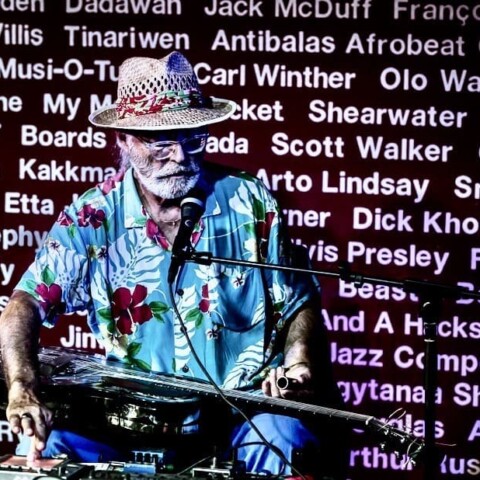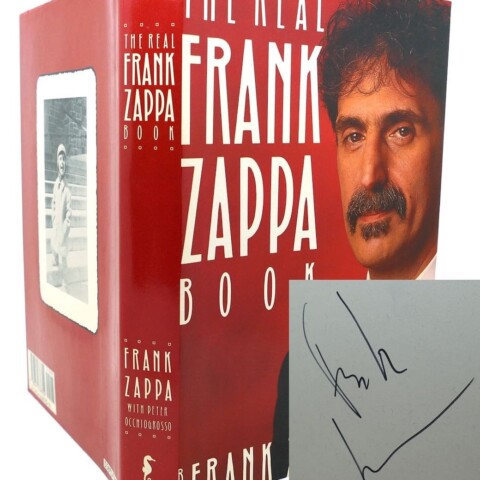 FEW MUSICIANS HAVE taken advantage of the first amendment to the Constitution of the United States to the extent that was exercised by the late Prince Rogers Nelson. The right to free speech was constantly at the forefront of his work, whether intentional or not. Prince’s lyrics straddled a finely woven tightrope indeed that placed his lyrical work between the poles of professional gimmick and freedom of expression, with one leg sometimes in the former but both always in the latter.
FEW MUSICIANS HAVE taken advantage of the first amendment to the Constitution of the United States to the extent that was exercised by the late Prince Rogers Nelson. The right to free speech was constantly at the forefront of his work, whether intentional or not. Prince’s lyrics straddled a finely woven tightrope indeed that placed his lyrical work between the poles of professional gimmick and freedom of expression, with one leg sometimes in the former but both always in the latter.
Prince didn’t originally burst onto the scene with the desire to shock. Whatever can be construed as shocking in his music was conceptually adopted early on as commercial leverage. As much as many music fans don’t want to believe or even accept it of their beloved icons, all acts need something more than music to attract initial attention. His early scantily-clad performances and erotic language served the purpose of a hook to reel punters in. On one side that’s exactly what they did. On the other, they pushed away potential converts who couldn’t see past them, despite the colossal musical skill that towered over and rendered the erotica as little more than a detail, or at worst a trivial annoyance.
This however did not stop Prince filling the top two positions of what was known as the filthy 15 – A list of songs compiled in 1985 by the Parents Music Resource Center (PMRC), an American committee founded by the wives of senators, treasurers and lesser players, with the goal of increasing parental control over access to rock lyrics deemed violent or sexual in theme. Sitting at number one with pride of place was Prince and the Revolution’s Purple Rain deep cut, ‘Darling Nikki’. Here’s the offending couplet in all its glory: ‘I knew a girl named Nikki, I guess you could say she was a sex fiend, I met her in a hotel lobby masturbating with a magazine’. Explicit, sure. But offensive? Not to the lonely pubescent I’m sure, who was having a laser beamed straight into his/her psyche with that one. To the adult it was mere piffle, or if it wasn’t, it should’ve been. And again, the driving drum ambience and haunting harmonic climate of what was Prince’s most impressive production to date, completely overshadowed any sense of impropriety, at least in my book.
The other Prince inclusion in the so-called filthy 15 was his pop hit for Sheena Easton, ‘Sugar Walls’. The words, mainly couched in metaphor, suggest little more to me than a happy jaunt through Willy Wonka’s chocolate factory. ‘Where I come from there’s a place called heaven, That’s the place where all the good children go, The houses are of silver, The streets of gold, But there’s more where you come from my sugar walls’. Otherwise I see only two lines that could stretch the imagination of a sensitive individual looking for trouble. They are: ‘Blood races to your private spots’ (This could mean acne couldn’t it?) and ‘Your body’s on fire’. If taken literally, that last line is probably more potentially offence-inducing to the politically-correct punter than would be its originally-intended visceral ambiguity. Ultimately, taken either way or interpreted in any way at all that a listener might choose, these words are completely harmless. Even Prince’s accidentally-voyeuristic depiction of Nikki’s foyeristic exhibitionism should surely now be viewed as but one brief steamy moment outnumbered in (or even representative of) a lyrical repertoire comprised more of conceptual religion and love.
Far from being a deterrent (with the exception of the forthwith enforced album cover warning sticker labelling), the PMRC debate was little more to Prince than a wide spot in the road and would’ve helped increase sales of the Purple Rain soundtrack which was already a multi-million seller globally. The follow-up album Around The World In A Day featured at least one track, ‘Tamborine’, that perpetuated the brazenness of ‘Darling Nikki’, though this slipped into the culture five months prior to the debate hearing and was apparently a non-issue. The ‘Tamborine’ lyrics were overshadowed by the track’s exemplary instrumentation and the even more superior tracks it was surrounded by. In hindsight I’d consider Around The World In A Day to be, if not his greatest musical moment, at least his most artistic example of a collection culled from the famous Prince vault, the album being as it was, recorded spottily over the previous couple of years, some of it before Purple Rain.
With an ensuing slew of album releases, Prince (with and then without The Revolution) continued to exercise his free speech rights with work that demonstrated an ever-increasing contribution to his seemingly one-man panoply of erotic lyric. Some artistically thought-out and others plain crass depending on your viewpoint, he left behind many examples of lines that could cause someone to either grin or blush depending which side of that particular tightrope they had a leg over. Here are some doozies.
‘Would you let me kiss you there?, You know, down there where it counts’.
‘When 2 R in love, Their bodies shiver at the mere contemplation of penetration, Let alone the act’.
Those ones leave little to the imagination. It’s pretty clear what’s going on, I think. Would you let me kiss you down there where it counts. Where? Florida? New Zealand? Could be. But it’s when Prince used imagery that the listener’s imagination was let loose to run wild. Try these.
‘I guess this is what you get for being cute, Soaked in banana cologne’.
‘The blood’s real good if you drink it real fast, but the aftertaste just lasts and lasts’.
When you’re used to his usual subject matter and he springs lines like that on you, you actually fill in the gaps yourself. He’s not really always saying what the other erotic examples you’ve heard from his oeuvre have fooled you into thinking. That last example could be dialogue from an Anne Rice vampire novel. Over the years, these kinds of lyrical surprises made listening suggestions difficult. Introducing his music to friends was an exercise in careful selection and more a matter of deciding what not to play to a particular individual. I was as lyrically unflappable as could be, but I respected the preferences of others and their personal moral code, just as I wholeheartedly did and do respect Prince’s and anyone’s right to free speech and the interpretation of according to the first amendment.
 There are of course many examples of sexless Prince lyrics. He had the balance so fine that I’m certain it was no accident when suddenly a yearning ballad like ‘Condition Of The Heart’, virtually bereft of any erotic or overly sentimental content for that matter, could carry such power and leave such an impression on a listener. His repertoire is punctuated with songs like these, many of them unreleased. Perhaps in time we’ll see the official release of gems like ‘Moonbeam Levels’ and the haunting ‘The Grand Progression’, a song from the late ‘80s that leaves you emotionally wasted in such a way as I cannot adequately describe. The song came into being around the time that culminated in the Lovesexy album and its cult-like anthems – an artistic pinnacle that seemed to close out an arc which had formed as far back as the 1999 album in 1982.
There are of course many examples of sexless Prince lyrics. He had the balance so fine that I’m certain it was no accident when suddenly a yearning ballad like ‘Condition Of The Heart’, virtually bereft of any erotic or overly sentimental content for that matter, could carry such power and leave such an impression on a listener. His repertoire is punctuated with songs like these, many of them unreleased. Perhaps in time we’ll see the official release of gems like ‘Moonbeam Levels’ and the haunting ‘The Grand Progression’, a song from the late ‘80s that leaves you emotionally wasted in such a way as I cannot adequately describe. The song came into being around the time that culminated in the Lovesexy album and its cult-like anthems – an artistic pinnacle that seemed to close out an arc which had formed as far back as the 1999 album in 1982.
So the intense lyrical sexuality wasn’t constantly in your face and there was of course much of substance to appreciate once you got past the lyrical glossolalia of sex-as-religion fervour. It’s clear that Prince was a shining example of, and perhaps, the last surviving example of musical free speech and the right to bear words of choice, being put so directly into practice. Bravo. And we barely even got to his music itself which is a whole different story. We can only hope for the continuance of his example and others like it in a time when so much that we communicate suffers attempted filtration by the thought police. RIP Prince Rogers Nelson (1958-2016). PETER KEARNS
















